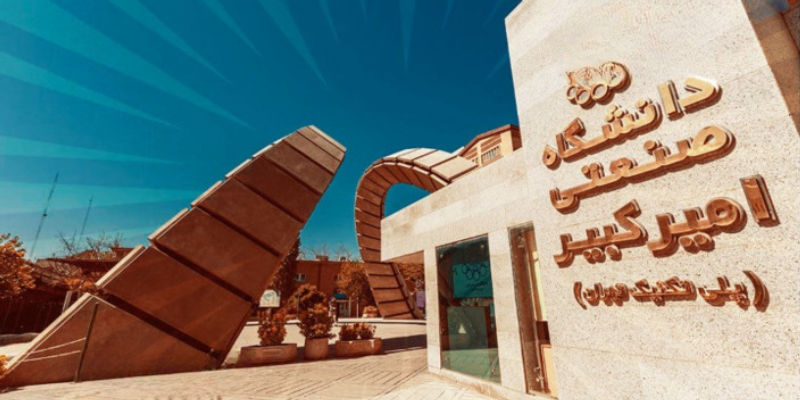Studying for a bachelor’s degree in Iran offers a unique academic experience, combining rigorous education with the rich cultural heritage of the country. The undergraduate programs in Iran are divided into two primary categories: continuous and non-continuous bachelor’s degrees, each with specific structures and requirements. For international students in Iran, in addition to completing academic coursework, students must also meet certain language proficiency requirements.
The affordability of tuition fees, alongside various scholarship opportunities, makes Iran an attractive destination for international students seeking quality education at a relatively low cost. Study in Iran provides a diverse and enriching experience that is both academically rigorous and culturally immersive. This overview provides insights into the structure, requirements, and opportunities associated with pursuing an undergraduate degree in Iran.
Study bachelor's degree in Iran
The undergraduate program in universities under the Ministry of Science, Research, and Technology of the country is divided into two categories: continuous bachelor's and non-continuous bachelor's. Those enrolled in any of these educational levels must complete the required courses based on the number of semesters in order to graduate.
The number of semesters for a continuous bachelor's program is 8 semesters, according to the regulations of the Ministry of Science, Research, and Technology and the university’s academic curriculum. The number of semesters for a non-continuous bachelor’s program is 4 semesters.
Those in the continuous bachelor's program must complete all their required courses, including theoretical and practical courses, in 8 semesters in order to graduate in their chosen field of study. The non-continuous bachelor's program, also referred to as the Associate to Bachelor’s exam, is offered for both medical and non-medical fields.
All candidates with an associate degree, whether continuous or non-continuous, can continue their education in the non-continuous bachelor's program. The number of semesters for a non-continuous bachelor's program ranges from a minimum of 67 units to a maximum of 70 units, which international students in Iran must complete in 4 semesters.
It should be noted that scholars who pay tuition fees must pay the fixed and variable tuition fees at the beginning of each semester to start the term. Therefore, international students must pay tuition fees for each semester of the non-continuous bachelor’s program. Each academic year consists of two semesters, and scholars are required to pass the courses they have registered for, as well as any prerequisite courses, in order to register for courses in the following semester.
One of the questions international students often ask when selecting courses is how many months each semester lasts. As mentioned, each academic year in the bachelor’s program consists of two terms: the first semester, which starts in September and lasts until mid-January, and the second semester, which starts in February and lasts until the end of June.

Choosing to study in Iran provides a structured timeline that helps international students in Iran plan their academic and personal schedules effectively. It's important to note that, according to the Ministry of Science, Research, and Technology’s regulations, each course lasts about 16 weeks. If a student misses more than three classes in a semester, the course will be dropped by the university’s academic department.
Additionally, the summer term for bachelor’s scholars is capped at two months. In some cases, scholars may not be able to complete the required courses according to the academic curriculum within the specified time. In such cases, scholars must request approval from the university's education department and the special commission to continue their studies so that they can complete their courses and graduate.
If a student earns a GPA of over 17 in any semester, they may, with the approval of the university’s education department and the availability of courses during registration, take up to a maximum of 24 units. It should be noted that some scholars may choose to take general and foundational courses during the summer semester.
Those with a GPA below 12 will be placed on probation and can only register for up to 14 credits in the next semester. As a result, students who meet the necessary requirements can typically graduate within 6 or 7 semesters. Once all required courses are completed, scholars can submit a graduation request to the university’s academic department to receive their bachelor’s degree.
In their final semester, scholars can take up to 24 credits, even if they were on probation the previous semester. However, if they have more than 24 credits remaining, they will not be considered in their final semester and will need to register for courses like any other regular semester.
If only one or two courses remain after completing all other requirements, scholars can request a special exam for those courses. In this case, attendance in class is not required, nor is there a set exam schedule. Those can study on their own and notify the professor when they are ready, and the professor will then arrange the exam.
Requirements for a Bachelor's Degree in Iran
To pursue an undergraduate degree in Iran, international students in Iran must meet specific requirements that vary depending on the medium of instruction. While most academic programs are taught in Persian, students are encouraged to take Persian language courses if they are not already proficient. This helps them integrate into the academic and cultural environment more effectively.
Applicants must have completed high school or an equivalent qualification to be eligible for enrollment. For those opting for English-taught programs, especially in technical or medical fields, universities typically require proof of English proficiency, such as an IELTS score between 5.5 and 6.0. This ensures that students can understand and engage with the course material in English.
-928.jpg)
For students planning to study in Iran through Persian-taught programs, fluency in the Persian language is essential. If students are not already proficient in Persian, they must complete a Persian language proficiency course before admission. Institutions like the International Center for Persian Studies (Dehkhoda) offer these courses to help students meet the language requirements. By meeting these prerequisites, students can successfully pursue an undergraduate degree in Iran, benefiting from the country's rich academic and cultural heritage.
Tuition Fees for a Bachelor's Degree in Iran
Tuition fees for Bachelor’s programs in Iran generally range from €1,000 to €2,000 per semester, depending on the university, major, and the student's nationality. Despite this, Iran remains an affordable destination for students, particularly due to the low value of the Iranian rial.
International students are encouraged to explore various scholarship opportunities and visit individual university admission pages for more detailed information on requirements and available financial aid. This makes higher education in Iran accessible and cost-effective, offering students a high-quality academic experience at a relatively low expense compared to other countries.
Conclusion
Pursuing an undergraduate degree in Iran presents a wonderful opportunity for international students in Iran seeking an affordable and high-quality education in a culturally rich environment. Whether you’re looking to enroll in a continuous or non-continuous program, there are various paths available to fit your academic background and career aspirations.
With reasonable tuition fees and a range of scholarship opportunities, Study in Iran remains an attractive option for both local and international students. If you’re considering studying in Iran, the PersiaStudy team is here to assist you with the admission process and help guide you every step of the way. Let us support you in turning your academic goals into reality!
 Sign In with Google
Sign In with Google 